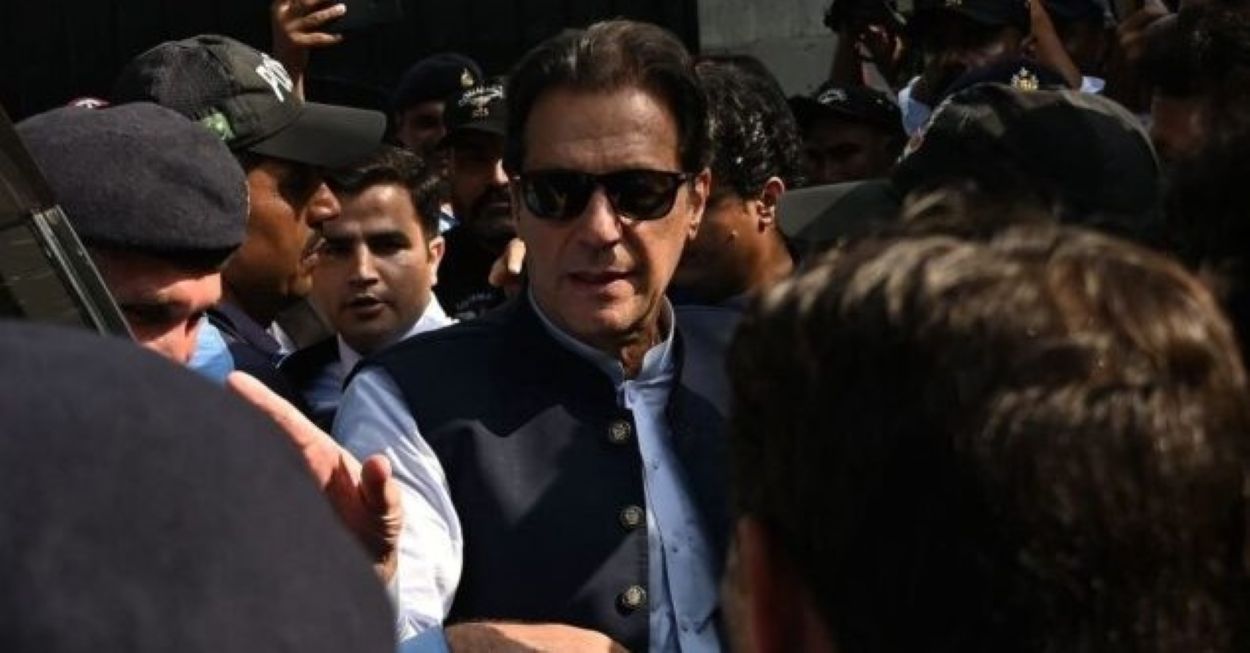On June 24, 2025, the Lahore High Court (LHC) rejected bail applications of former Pakistan Prime Minister and Pakistan Tehreek-e-Insaf (PTI) founder Imran Khan in eight cases linked to the violent May 9, 2023, protests, including the attack on Jinnah House. The decision, delivered by a two-member bench led by Justice Shahbaz Ali Rizvi, followed arguments from both prosecution and defence.
The May 9, 2023, protests erupted nationwide after Imran Khan’s arrest by paramilitary forces, acting on orders from the National Accountability Bureau (NAB) in an alleged corruption case. PTI supporters and workers staged demonstrations, which turned violent, targeting public and private properties. Notable incidents included attacks on military installations, such as the General Headquarters (GHQ) in Rawalpindi and the Lahore Corps Commander’s House (Jinnah House), as well as the desecration of martyrs’ relics.
🚨🚨#BREAKING: Division bench of #Lahore high court rejects bail petitions of former PM @ImranKhanPTI in eight anti terrorism cases of 9th May incident. pic.twitter.com/1M3jTPWIdo
— Asad Ali Toor (@AsadAToor) June 24, 2025Civil and military authorities vowed to impose strict penalties under laws, including the Army Act, for those involved in arson, vandalism, and attacks on sensitive sites. Imran Khan faces multiple charges stemming from these events, ranging from inciting violence to property damage.
An Anti-Terrorism Court (ATC) initially dismissed Khan’s bail pleas on November 27, 2024. His subsequent applications to the LHC sought relief in eight cases, including the high-profile Jinnah House attack. The LHC’s verdict on June 24, 2025, upheld the earlier decision, keeping Khan in custody. He has been incarcerated since August 2023, facing various charges, including corruption and terrorism, following his ouster as prime minister in April 2022 via a no-confidence motion.
Implications and Political Context
The bail rejection is a significant setback for Khan and PTI, intensifying the former leader’s legal and political challenges. Since his removal from office, Khan has been embroiled in numerous legal battles, which he claims are politically motivated. The May 9 cases, in particular, carry heavy symbolic weight due to the attacks on military sites, seen as a breach of national security by authorities.
Read: Imran Khan’s Solitary Confinement in Adiala Jail KP MPAs’ Call for Protest
The verdict may further polarise Pakistan’s political landscape, with PTI supporters likely to view it as an extension of Khan’s alleged persecution. Meanwhile, the government and military continue to emphasise accountability for the May 9 violence.
As Khan remains behind bars, his legal team is expected to explore further appeals or alternative legal strategies. The cases underscore the ongoing tension between PTI and Pakistan’s establishment, with potential implications for political stability. Observers will watch closely for developments in Khan’s other pending cases and their impact on PTI’s future.






